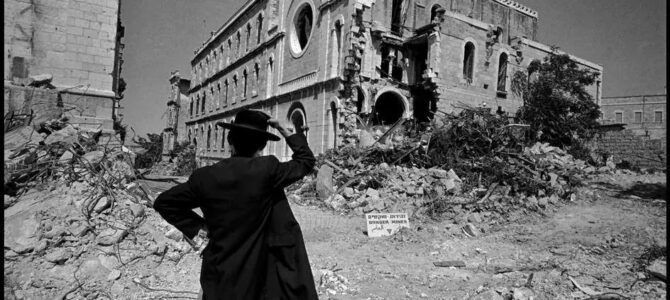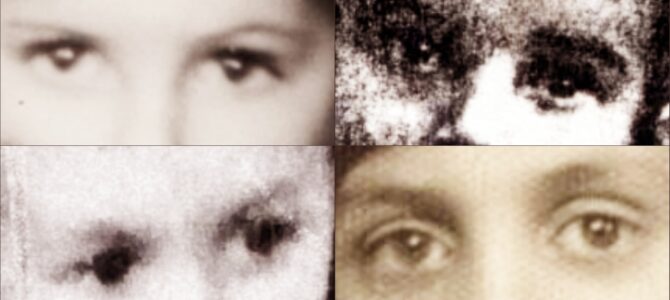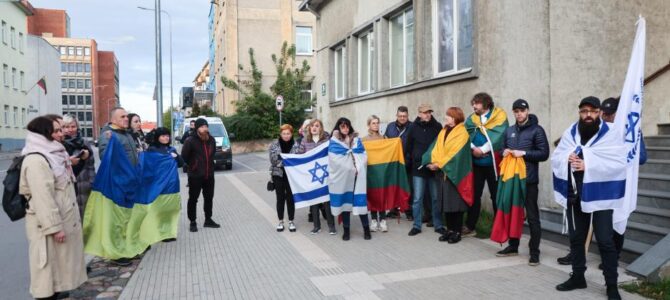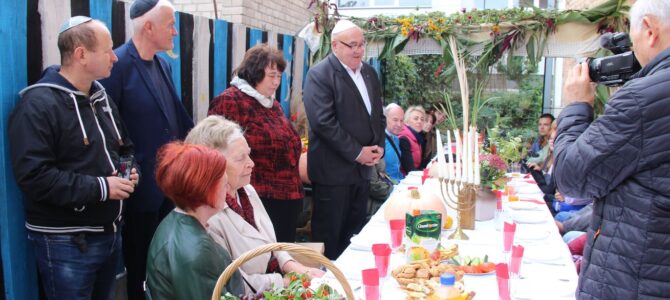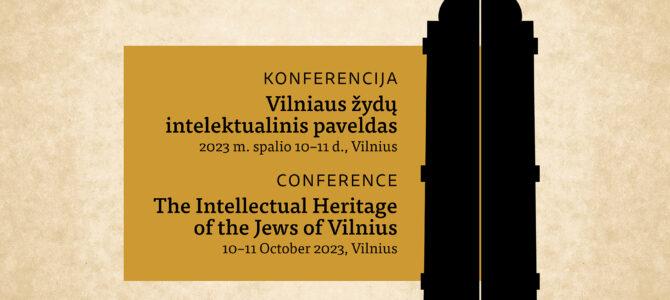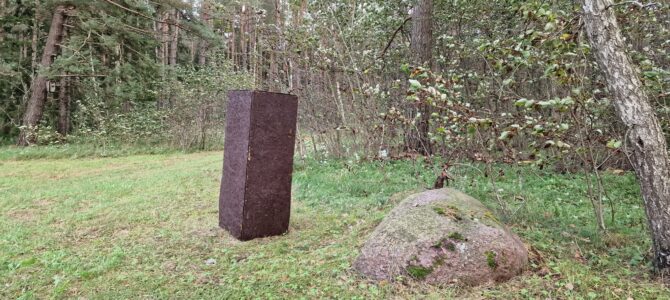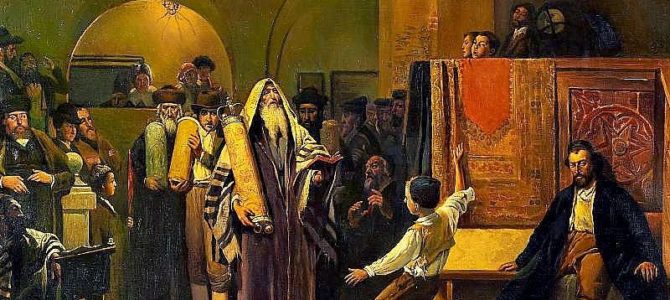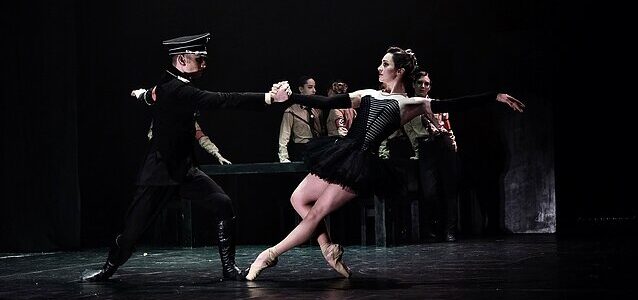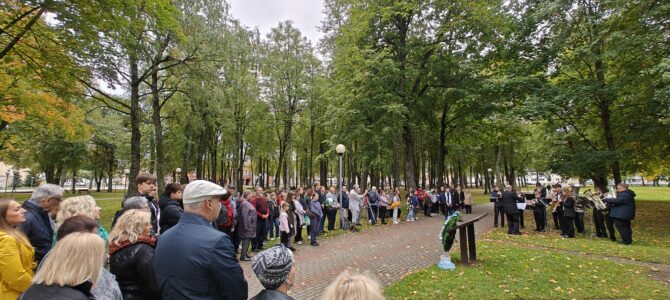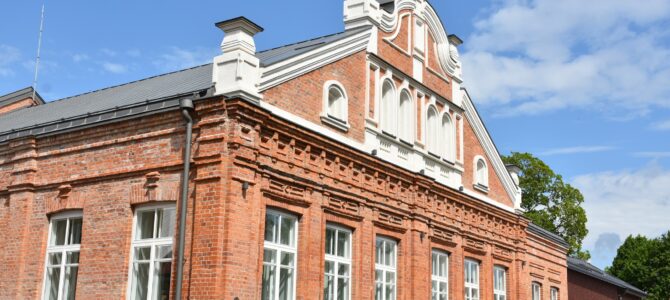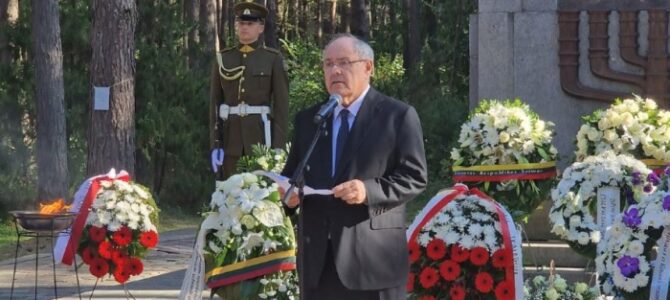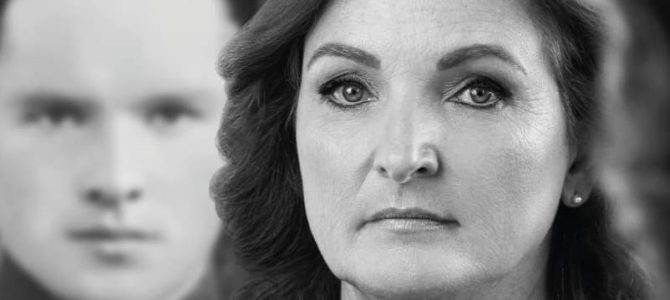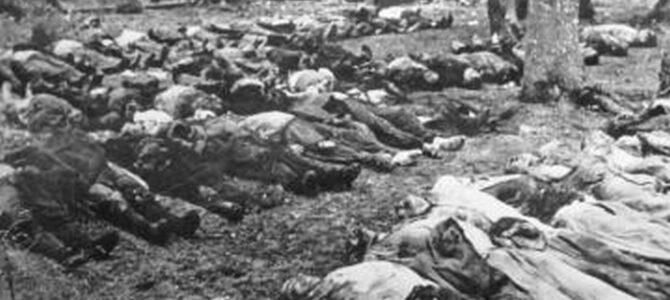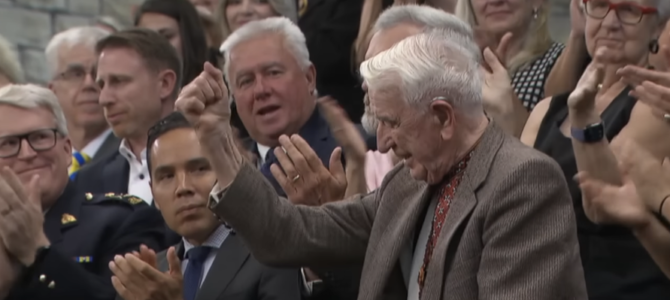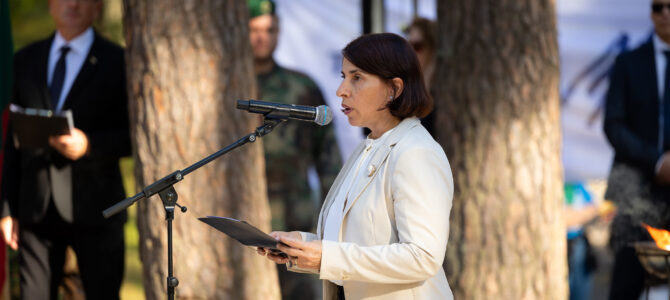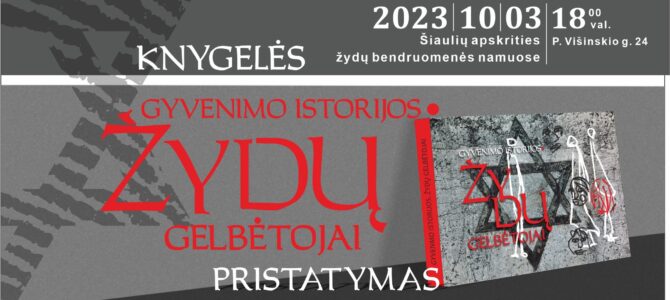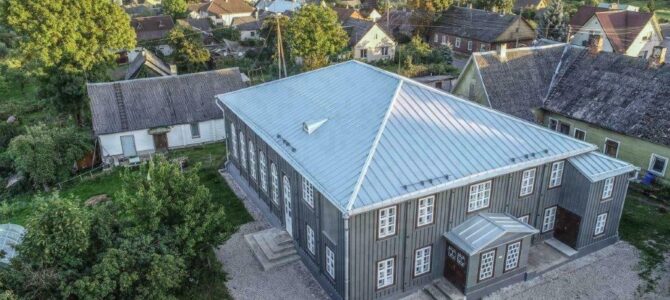Photo: Chairman of Yad Vashem Dani Dayan at the memorial ceremony in the Ponary forest, remembering the over 200,000 Lithuanian Jews brutally murdered during the Holocaust, at this very site, courtesy X, formerly Twitter, used in accordance with clause 27a of US copyright law.
by Efraim Zuroff
The locals may never own what they did, but Yad Vashem’s chairman spoke truth to power, calling out their role in eliminating a vibrant Jewish world
During the past two decades, virtually every country in Europe, and many in the Western Hemisphere, have adopted a Holocaust memorial day, many inspired by the decision of the United Nations to do so in 2005. Quite a few have chosen to follow the example of the UN by commemorating the date of the liberation of Auschwitz death camp on January 27, 1945, but others chose dates that mark significant events in the history of the Shoah in their respective countries. In some cases, the choice is a reflection of the significance of specific Holocaust events for their societies, or the desire, or lack thereof, to emphasize the complicity of local Nazi collaborators.
Thus, for example, France chose July 16, the anniversary of the mass arrest in Paris in 1942 of 13,152 French Jews, who were deported to their deaths in Auschwitz by the local police. Similarly, Hungary chose April 16, the date of the initial orders for the ghettoization of Hungarian Jewry, the prelude to the deportation of 437,000 of them to Auschwitz in spring of 1944. Bulgaria, by contrast, chose March 10, the date on which the government revoked its original plan to deport the country’s entire Jewish population to Treblinka.


